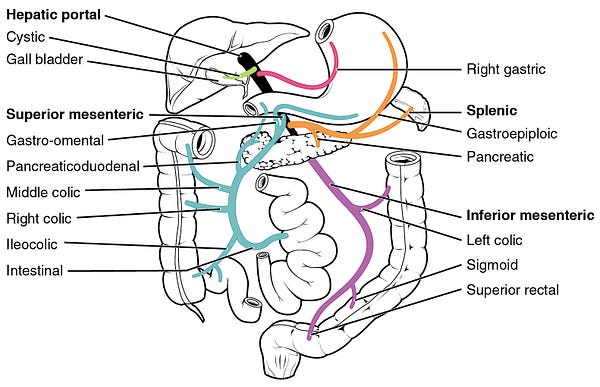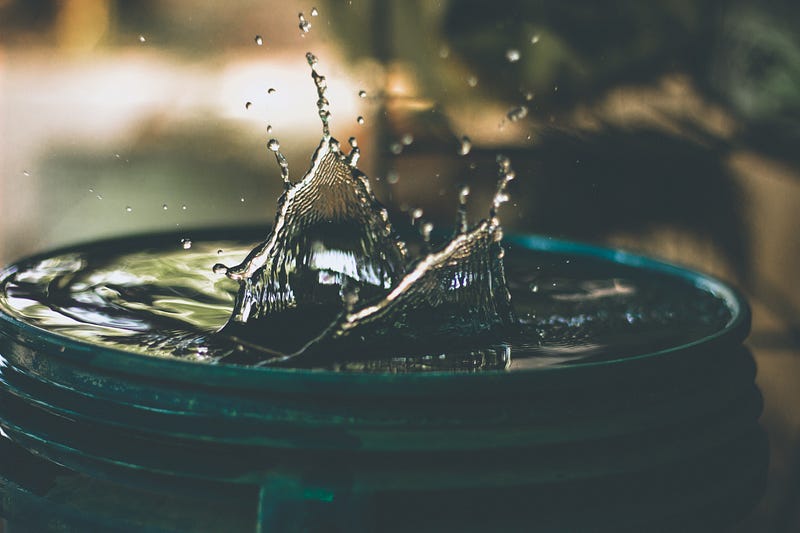Water-Soluble vs. Oil-Soluble CBD : What You Need To Know
Hemp-derived CBD oil has gone mainstream.
CBD, also known as cannabidiol, is an incredibly beneficial plant compound derived from Hemp. Although not everyone knows about it yet, the vast majority of people out there that have heard about it associate it with oil. They may imagine any of the popular oil-based products such as tinctures, creams, and vapes.
We all know that oil and water don’t mix well. This reality makes things a bit tricky for CBD and other oil-soluble plant extracts because most products and supplements we use are not oil-based.
What most people don’t know is that CBD, in its natural oil form, can only be effectively incorporated into the body through a narrow range of uses. Common oil-based delivery methods, like tinctures, are not meant to be swallowed, and for good reason.
It all comes down something known as bioavailability, which indicates how much of any given substance is actually able to be absorbed by the body. There’s one bodily process in particular that’s responsible for preventing the effective uptake of CBD oil in the stomach.
First Pass Metabolism
First-pass metabolism (also referred to as the first-pass effect) is a physiological phenomena in drug (plant extract) delivery science where the concentration of a compound is greatly reduced before it reaches systemic circulation.
This concentration reduction means a decrease in bioavailability, and is a relatively common problem that affects a huge range of compounds including, morphine, curcumin (from turmeric), lidocaine, nitroglycerin, and many found in cannabis.

First-pass metabolism only affects the bioavailability of CBD when consumed orally, and there are some creative chemistry techniques used to get around it.
Luckily, rubbing CBD into your skin, dropping some tincture under your tongue, or hitting a vape pen allows the CBD to directly enter systemic circulation. These delivery methods don’t go near any of the mechanisms associated with the first-pass effect, and bioavailability is not negatively affected.
What’s the problem?
The issue still remains that we cannot effectively absorb CBD when swallowed in it’s natural oil state.
You might be thinking, “What about all the CBD capsules and drinks out there? Am I not actually getting the full dose that’s advertised?” The answer to those questions all depend on the method used to formulate the CBD extract.
As we learned above, the first pass effect greatly decreases the bioavailability of CBD oil when swallowed. So, unfortunately, nearly all CBD-oil capsules that you see on the market will have very poor absorption rates. That translates to taking a 20mg capsule and only actually absorbing around 5mg!
Luckily, brilliant scientists have already addressed this problem and have devised ways to effectively overcome the first pass effect.
They’ve developed novel chemistry techniques that are now common in drug delivery science and are super important because almost 40% of new drug compounds are hydrophobic and have the same oral bioavailability issues as CBD. [source]
Enter Water-Soluble CBD…
One of the primary ways to overcome the first-pass effect is to convert the naturally oil-soluble CBD extract into a water-soluble form. This makes total sense, especially when considering the fact that the average adult is somewhere from 50–60% water.

So how does this happen? Well, the technique that we use at UnCanny Wellness is known as Self-Emulsifying Drug Delivery System [SEDDS], and possesses unparalleled potential in improving oral bioavailability of poorly water-soluble drugs. [source]
Basically, you can think of CBD extract in oil form is a big blob (very scientific, I know). When this blob of oil enters your stomach it’s too large to pass through your gut lining and enter systemic circulation without being broken down by enzymes and passed along the the liver for processing.
By converting the oil to a water-soluble powder, the oil-blob is broken down into tiny, micro-sized pieces. These pieces of oil are very, very small, and are encapsulated within other non-toxic materials to ensure they remain stable in this new form. The end result of this process is an off-white, water-soluble, micro-encapsulated, full-spectrum, CBD hemp extract.
This conversion process completely overcomes the first-pass effect, and allows CBD oil (and other similar compounds) to be consumed orally without sacrificing bioavailability.
Why should you care?
Converting CBD oil to a water-soluble powder greatly increases the ways in which it can be used. Not everyone wants to hold a tincture under their tongue or hit a vape pen in order to get their dose of CBD.
When we take a look what’s on the shelves of health and wellness aisles in natural food stores, we can see that there are an overwhelmingly large amount of capsules and drink-powders. Only by converting CBD oil into a water-soluble powder can we effectively incorporate CBD into these types of products.
Water-soluble CBD powder opens up a world of possibilities. Not only does it allow us to effectively use capsules as a form of precise CBD delivery, but it also lets us use CBD in any drink or food product we can imagine.

Want to infuse CBD into your pasta sauce? Sure.
How about throwing some CBD into that latte? No problem at all.
CBD in your smoothie? Done deal.
As you can see, water-soluble CBD powder has endless potential. It makes the most sense for widespread adoption and use in our everyday lives. Sure, you could just drop some CBD oil into any of the examples above. But how much would you actually be absorbing? Not much at all…
It would be like paying for a full tank of gas and only getting 10–20%. That’s simply unacceptable.
In Conclusion
Supplementing your wellness routine with a powerful plant compound like CBD does not need to be a chore. As a species, we’ve grown up with the cannabis plant, and hemp has played such an important role in our history.
We all contain an incredibly complex and important endocannabinoid system in our body that helps to regulate the function of our nervous and immune systems. Activating this system with CBD supplementation is something that nearly everyone can benefit from.
It’s time to start firing that system up with water-soluble CBD !

